Health care insights: Leaders share 2024 trends in Iowa

Two months into 2024, Iowa health care leaders sat down with the Business Record to discuss the biggest challenges now and in the future, shared updates about new projects and initiatives, and explained the significance of artificial intelligence within the industry.
Top trends in the sector include partnering with schools and establishing interest in health care among younger populations through new education programs, building new centers to expand services and meet increasing patient needs, and proceeding cautiously with the rising popularity of AI.
Here are four takeaways from conversations with leaders from UnityPoint Health, the Iowa Clinic, MercyOne and Broadlawns Medical Center.
Workforce shortages continue to present a significant challenge
Iowa has the eighth-lowest number, 227.5, of active physicians per 100,000 people among all 50 states and the Washington, D.C., according to the U.S. Physician Workforce Data Dashboard, which launched in November 2023.
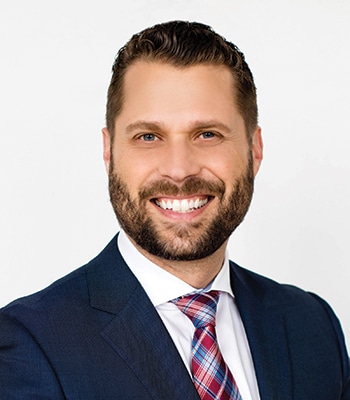
Ben Vallier, CEO of the Iowa Clinic, said keeping physicians in the state and attracting out-of-state candidates have become top priorities.
“In Des Moines, we provide care, particularly subspecialty care – think about neurosurgery or cardiothoracic surgery, things like that – for a big part of the state,” Vallier said. “You can go to Davenport for some things if you’re on the east side. You can go to [Sioux City] out west, or you can go to the University [of Iowa]. But really, Des Moines provides care for a massive geography for the state of Iowa. We have an obligation here to provide services vis-a-vis physicians that don’t exist in most places in the state.
“And so then we have to create compelling reasons that can attract doctors to come to Des Moines despite things like weather, despite [people thinking], ‘OK, [Des Moines] is a city I’ve heard of, presidential candidates show up there, they have a fair,’ things like that. So we have to overcome those challenges, and we have to attract not just physicians but awesome physicians, in really rare subspecialties, to come to Des Moines.”
UnityPoint Health’s approach to the workforce challenge includes retaining current team members, recruiting new team members and exploring how to develop new health care leaders for the future.
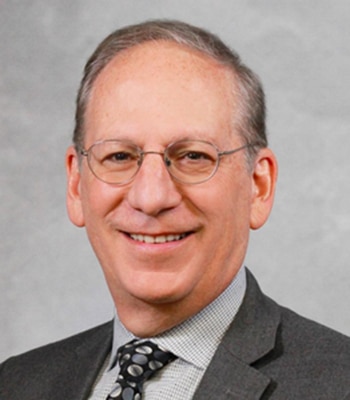
To recruit new members, Jon Rozenfeld, market president for UnityPoint Health – Des Moines, outlined four areas of focus: creating a culture and environment that draw people to UnityPoint; providing opportunities for career advancement; helping employees create a work-life balance; and establishing a strong onboarding process.
Broadlawns continues to invest in its TECH & TEACH apprenticeships for individuals interested in pursuing a career in health care. The programs include TECH (training and education for a career in health care) for high school students and TEACH (training and education for adults seeking a career in health care) for adults, according to the Broadlawns Medical Center website.
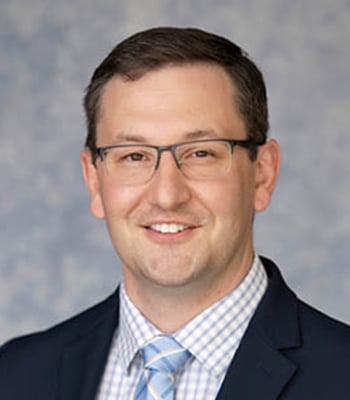
“I think pipeline programs are very important as we look at the future of health care,” Jason Kruse, Broadlawns Medical Center interim CEO, said.
MercyOne developed a virtual medical assistant program, a partnership among Mercy College of Health Sciences, MercyOne Des Moines Medical Center and MercyOne Iowa Heart Center, that will allow students across the state to work full time while going to school to become medical assistants.
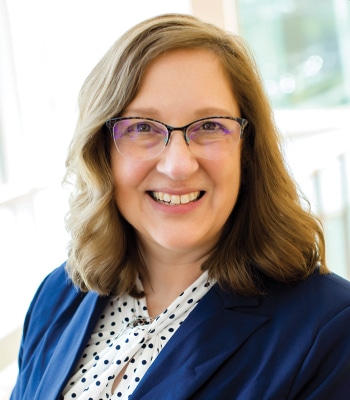
“They go through a six-month program. At the end of six months, they take the certification exam to be a medical assistant,” Jennifer Olson, president of MercyOne’s Central Iowa Medical Group, said. “Our current cohort has 11 colleagues from across the state. We’re hoping to build that out to 30 per cohort as we continue to expand the program.”
Partnering with schools to generate student interest
The Iowa Clinic collaborated with the Waukee Community School District on a new volunteer program that started the week of Feb. 19.
All of the students in the program are juniors and all have an interest in health care, whether they’re interested in becoming a cardiologist, occupational therapist or a nurse, Amy Varcoe, marketing and communications director at the Iowa Clinic, said.
“They will be basically assisting patients as they come into our facility, finding their department or their clinic location, wayfinding basically, but also just interacting with them,” she said. “We have given them the latitude to say, ‘Hey, they look like they’re not having a great day. Here’s a little service recovery, whether it’s a coffee or some sort of tea or a snack in our cafe, really just patient interaction and that culture piece. [It’s] kind of the warm handoff from our front doors to our volunteers to the clinic, so kind of escort to and from, making sure that they’re not lost.”
For the past two years, UnityPoint Health has offered nurse camps to establish interest in nursing and health care among kids in middle school.
In summer 2022, 59 middle schoolers from across Iowa gathered in UnityPoint’s Simulation Center for a series of two-day immersive experiences.
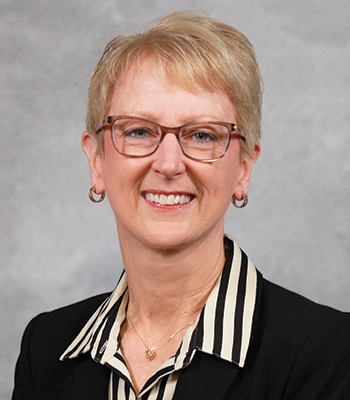
Denise Cundy, chief nursing officer at UnityPoint Health – Des Moines, said the first summer camp, nurse camp 1.0, introduced students to more hands-on learning activities such as CPR, observing animal lungs and moving patients in wheelchairs. Last year, the students advanced to nurse camp 2.0, where they learned more advanced skills such as giving injections or medication administration. “The whole goal is to get them interested in health care early, even if it’s not nursing, something health care, so that they’re taking the right classes as they go through high school,” Cundy said.
Expanding services and updating models to meet patient needs
Within the past eight months, MercyOne has focused on unifying its medical group across the state, Olson said.
“We have taken our clinical practices across the state and have standardized and optimized patient access,” she said.
The purpose of unifying the medical group was to ensure patients have a similar, positive experience regardless of which MercyOne clinic they visit in Iowa.
“That’s still a work in progress, but we are getting there quickly,” Olson said. “Again, it’s only been six months [or] seven months now. We have developed a regional team, so we have a regional health ministry team of leaders for the medical group. Our directors all work together across the state, so our primary care director in the Des Moines metro will have a relationship with the same equivalent director in Waterloo, Mason City, Clinton, Davenport and Sioux City. And so in those areas, primary care will look very similar. So identifying and unifying the leadership and getting them regionalized and working in the same direction.”
MercyOne is also preparing to open a new pediatric clinic in Waukee at the end of March, Olson said.
Following a strategy to expand services in Waukee, the Iowa Clinic opened its 60,000-square-foot South Waukee Clinic and Ambulatory Surgery Center, located at 1025 S.E. Tallgrass Lane, on Feb. 21.
The new clinic houses an ambulatory surgery center with a cardiac catheterization laboratory, where specialists from orthopedic, foot and ankle, hand surgery, pain management, and cardiology perform procedures.
UnityPoint is planning to open a new 75,000-square-foot multispecialty clinic, named the UnityPoint Health-Waukee Medical Park, on the southeast corner of Grand Prairie Parkway and Southeast Tallgrass Lane in May.
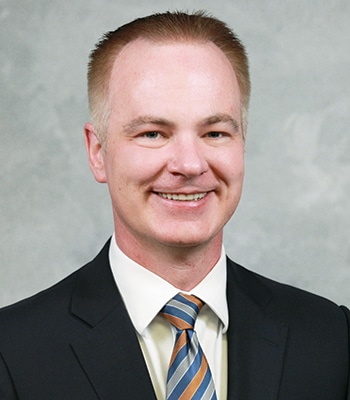
“The new location in Waukee will offer everything from family practice to cardiology to neurology to general surgery to obstetrics,” Thomas Mulrooney, UnityPoint Health – Des Moines chief operating officer, said. “We’ll have radiology services there as well, too. Across the board, [it will have] a lot of different services and obviously in a very fast-growing community there, too.”
Proceeding with caution on artificial intelligence
While health care companies in the state are beginning to incorporate some forms of artificial intelligence into their operations, they are proceeding slowly and with caution.
“I would say first, we’re being very, very cautious with [AI],” Vallier said. “The Iowa Clinic likes to be on the leading edge of things, but we don’t want to be on the bleeding edge of things.”
Vallier added that the Iowa Clinic has started using some machine and AI technology, but mostly with back-office-type processes.
“That’s kind of, we think, the safest, most appropriate place to do that, where you’re replacing manual labor, or someone’s got to go and look up something that’s dreadfully difficult or arduous,” Vallier said. “If we can replace that with a computer helping them do that, that’s the best way to augment what is a very service-oriented human-to-human type of business for us. And so that’s where it’s limited for us right now.
“Obviously, the utilization of that, the uses for it are going to grow, I think, exponentially. I think it’ll be as transformational as the internet was, in a much shorter period of time, in probably ways that we can’t even fathom right now. I’m sure it will continue to grow, but I would want Iowa Clinic’s patients to know that so far, Skynet [from ‘The Terminator’] is not going live at the Iowa Clinic. But we are very interested in making sure that we have the right technology to support their care in ways that they can feel really good about.”
While artificial intelligence continues to advance rapidly, Rozenfeld believes it is still in its infancy in the health care industry.
“I don’t have a lot to share as it relates to what we’re doing with it, but I would say that it is something that you will hear a lot about,” he said. “Obviously, with health care, there’s a lot of caution because we’re dealing with patient information and details, and we have to make sure that we protect that information, but I would say within the coming years, AI applications in health care will develop and continue.”
Kruse is using more of a wait-and-see approach with AI uses in health care at Broadlawns.
“It gives me a little bit of pause that a couple of years ago, Amazon and some of the other major tech players and insurance players looked at AI as a solution they were going to kind of change the world with,” he said. “And then because of the way medical records are maintained and siloed, and some inconsistencies that we have in those records, they ended up pulling back from that plan. If larger-scale places haven’t been able to figure that out, we’re kind of watching and waiting. We’ll see how it develops.”

Kyle Heim
Kyle Heim is a staff writer and copy editor at Business Record. He covers health and wellness, ag and environment and Iowa Stops Hunger.











